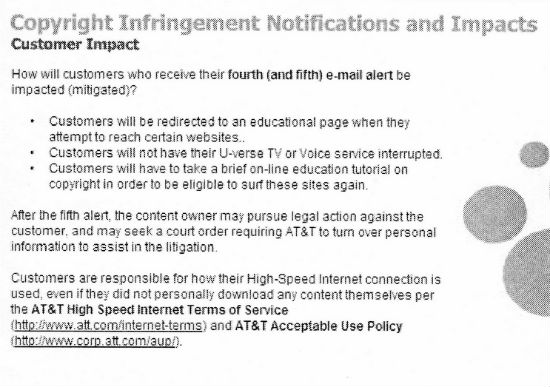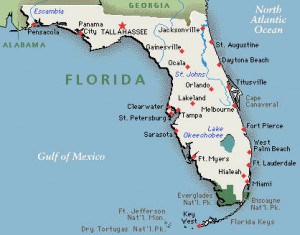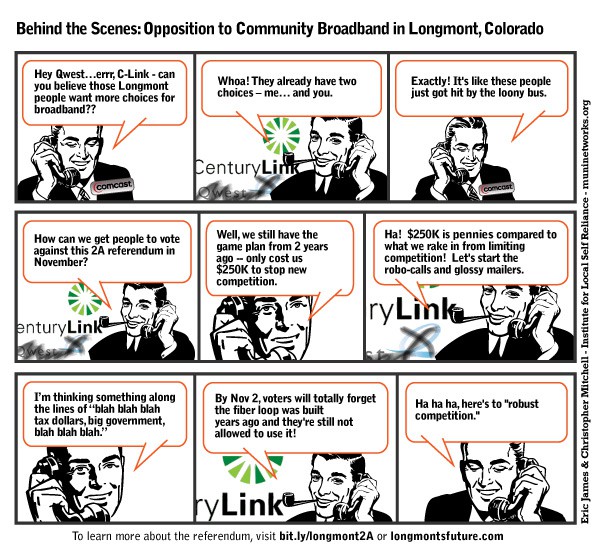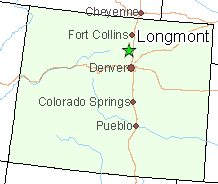 AT&T will begin sending out anti-piracy warning notices to subscribers caught downloading copyrighted content from torrent sites starting Nov. 28.
AT&T will begin sending out anti-piracy warning notices to subscribers caught downloading copyrighted content from torrent sites starting Nov. 28.
The new anti-piracy measures are part of a joint agreement between the Motion Picture Association of America (MPAA), the Recording Industry Association of America (RIAA), and five major national ISPs to help curtail content theft.
TorrentFreak obtained internal AT&T training documents that outline how AT&T will deal with customers suspected of illicit downloading. After a series of warnings, AT&T intends to block access to websites suspected of copyright infringement until a customer successfully completes a course on online copyright law. Eventually, those caught repeatedly downloading pirated movies and music could face legal action after AT&T turns over the identities of suspect customers. Gone from early draft proposals are suggestions that ISPs will throttle or suspend service altogether for repeat violators.
Late reports indicate that other ISPs participating in the copyright enforcement action — Cablevision, Comcast, Time Warner Cable and Verizon — will also launch their own programs on the same date.
Most at risk are customers who frequent peer-to-peer file sharing sites. Tracking BitTorrent traffic is a priority for the newly-launched Center for Copyright Information (CCI) — a joint venture run by the ISPs in coordination with the MPAA and RIAA.
While not all peer-to-peer file traffic consists of illicit swapping of copyrighted works, some high profile torrent sites are among the first choices for consumers looking for free movies or music. CCI believes its Copyright Alert System (CAS) is primarily an educational tool for consumers who may not realize they are stealing copyrighted content. With its “six warnings” policy, CCI wants consumers to take action to protect themselves, their Internet accounts, and home networks well before any legal action is taken.
 The latest implementation of the Copyright Alert System has watered down some of its earlier provisions, which could have put a customer’s Internet account at risk of being speed throttled or canceled. For now, consumers will receive six warnings about any suspected copyright infringement:
The latest implementation of the Copyright Alert System has watered down some of its earlier provisions, which could have put a customer’s Internet account at risk of being speed throttled or canceled. For now, consumers will receive six warnings about any suspected copyright infringement:
- The first three strikes carry no consequences and are intended to serve as informational warnings that the downloading of copyrighted content may be taking place;
- The fourth and fifth strikes will trigger forced browser redirects to a copyright education page and an online course on copyright law that must be successfully completed before the customer can once again visit suspect websites;
- Strike six means AT&T (and presumably other ISPs) will turn over the IP addresses of repeat offenders and comply with any subsequent court orders requesting the identity of the customer for possible legal action. AT&T does not say it will terminate the customer’s account, but does remind customers to be mindful of its Acceptable Use Policy, which does allow them to terminate service for illegal acts.
Consumers caught allegedly downloading copyrighted content can protest their innocence, but a $35 refundable filing fee is required to begin the arbitration process. If a consumer proves the files downloaded were not illegally obtained or that their account was flagged in error, they can have the warning canceled and get their filing fee refunded. But there are no penalties for CCI, its copyright tracking arm run by MarkMonitor, or the ISP if the copyright tracking system gets it wrong.
Critics of the copyright enforcement scheme claim it delivers too many benefits for CCI and its industry backers and insufficient protection for consumers misidentified during copyright infringement dragnets.
For-profit copyright tracking companies have made false allegations in the past, forcing CCI to hire an “independent and impartial technical expert” to verify the accuracy and security of the tracking technology used. CCI hired the firm of Stroz Friedberg as their expert.
Critics charge Stroz Friedberg is actually a recording industry lobbying firm, who worked with the RIAA for five years, earning $637,000.
“It’s a disappointing choice, particularly in light of CCI’s professed desire to build public confidence in CAS and the fairness of its processes,” University of Idaho Law Professor Annemarie Bridy told TorrentFreak. “It would have been refreshing to see an academic computer scientist or some other truly independent party appointed to fill that important role.”
Bridy calls CCI’s Copyright Alert System lacking in transparency and stacked in favor of copyright holders, not consumers.
Stroz Friedberg’s appointment has also raised eyebrows among others that suggest their past lobbying violates the spirit of a Memorandum of Understanding signed by all parties requiring “independent and impartial” oversight.
“CCI’s choice of a former RIAA lobbying firm makes it clear that the copyright owner parties to the Memorandum of Understanding were more interested in appointing someone they trust than in appointing someone the public can trust,” Bridy adds.
Network World columnist Steven Vaughan-Nichols worries this is just the beginning of another copyright enforcement overreach:
The name of their game is to monitor your network traffic, with the help of your friendly ISP. Their justification for this is the usual made-up “facts” that content theft leads to “more than 373,000 jobs, $16 billion in lost wages, and $2.6 billion in lost taxes.” Yeah, I’m also sure someone downloading copyrighted porn leads to cats and dogs living together.
One reason I can’t buy into all this is that, as TorrentFreak points out, the Center’s expert who vouches that this all works is none other than Stroz Friedberg, a former RIAA lobbyist. Oh yeah, he doesn’t have bias for paranoid copyright protection companies.
What this means for you is that if your ISP is AT&T, Cablevision, Comcast, Time Warner, or Verizon, they’ll be watching your use of BitTorrent and letting CCI decide if you deserve some warnings, an end to your Internet service, or a full-out lawsuit.
[…] The RIAA, the MPAA, and other copyright “protectors” have never done anything for content creators. They’re all about protecting the businesses stuck with old, broken, pre-digital business models. Even that wouldn’t be so bad, except historically they’ve always vastly over-reacted.
We all know the stories of some poor slob who’s been slammed with tens of thousands of damages for downloading a song. What you may not know is that all the powers that be have to do is to claim something is copyrighted, whether it is or not, and multiple websites can be closed in minutes or your entire digital library can be destroyed.
Does that sound like paranoid fantasy? I wish.
[…] Oh yeah, I feel really sure that the CCI and friends are going to do a good job. Welcome to the new copyright world, same as the old, where you’re always considered guilty rather than that quaint idea of being considered innocent before proven otherwise.
CCI admits sophisticated pirates will probably never get caught by its Copyright Alert System, because most of them are moving to secured Virtual Private Network (VPN) technology that effectively masks their identities. TorrentFreak notes sales for VPN’s are skyrocketing, many headquartered far away from the reach of the United States in exotic, subpoena-proof locations like Cyprus, the Seychelles, Romania, and Ukraine.
[flv width=”640″ height=”500″]http://www.phillipdampier.com/video/RT Thom Hartmann Copyright Alert System 3-20-12.flv[/flv]
RT’s Thom Hartmann presided over a debate about online copyright theft control measures proposed earlier this year by the entertainment industry and Internet Service Providers. Appearing with Hartmann are David Seltzer, Attorney & Mark Bledsoe. (March 20, 2012) (12 minutes)


 Subscribe
Subscribe











